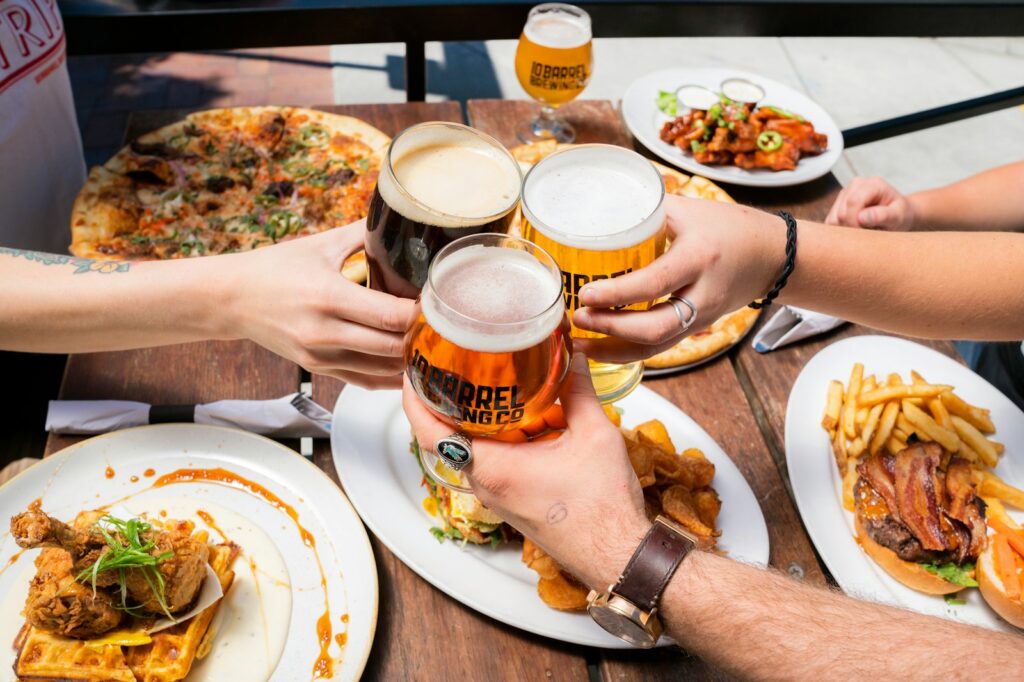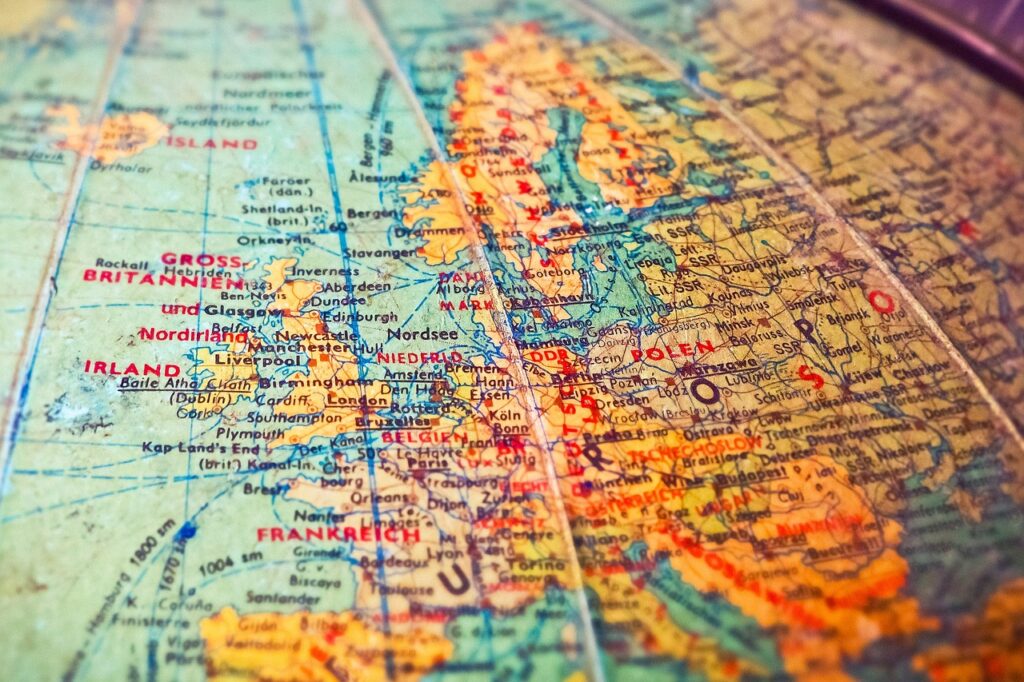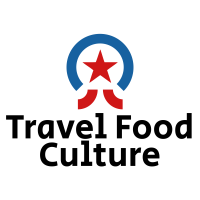Travel Food Culture is the ‘Religion’ of the Future
In a world increasingly marred by divisions of race, religion, and nationality, the trio of travel, food, and culture emerges as a unifying force, transcending boundaries and fostering a sense of global camaraderie. Unlike traditional religions that often segregate humanity into rigid factions, this trinity offers an inclusive, joyous experience that appeals to the universal human spirit. It embodies the cosmic principles of unbounded free will, autonomy, and randomness, alongside the essential cosmic equilibriums: Creator-Creation Equality, wave-particle duality, zero tolerance for all forms of untruths and inequalities, and the equilibrium of unselfishness and kindness. This unique combination positions travel, food, and culture as the ‘religion’ of the future, a constant source of joy that has the potential to render all other religions obsolete through its unparalleled magnetic force of unification.
In a world increasingly defined by rapid technological advancement and shifting social paradigms, the traditional constructs of religion and belief systems are undergoing a significant transformation. As global citizens grapple with existential questions and the complexities of modern life, there is a burgeoning movement towards finding new sources of meaning and connection. One of the most compelling trends emerging in this context is the rise of travel, food, and culture as a kind of ‘religion’ of the future. Unlike conventional religions, which often emphasize dogma, ritual, and exclusivity, this new ethos promotes inclusivity, exploration, and a celebration of diversity. It is a ‘religion’ that transcends borders and cultural boundaries, uniting people through shared experiences and universal human values.
The allure of this emerging ‘religion’ lies in its ability to offer genuine and profound connections with the world and its inhabitants. Travel allows individuals to step out of their comfort zones and immerse themselves in new environments, gaining fresh perspectives and a deeper appreciation for the vast tapestry of human cultures. Food, with its universal appeal, serves as a powerful medium for cultural exchange, offering a sensory experience that connects people across linguistic and cultural divides. Meanwhile, culture provides a rich context for understanding the histories, beliefs, and traditions that shape societies, fostering empathy and mutual respect.
This movement towards travel, food, and culture as a form of fulfillment and evolutionary path is not merely a trend but a response to a deep-seated yearning for authenticity and belonging. In an era marked by globalization and digital connectivity, there is a growing awareness of the limitations of traditional religious and national identities. People are increasingly seeking ways to engage with the world that honor their individuality while also connecting them to a larger human community. This new ‘religion’ offers a way to navigate the complexities of contemporary life, providing a framework for ethical living that emphasizes compassion, curiosity, and openness to new experiences.
This article discusses how travel, food, and culture can act as a unifying force, replacing divisive religious and cultural practices with a more inclusive and holistic approach to life. It explores how this emerging ‘religion’ aligns with the cosmic principles of free will, autonomy, and cosmic equilibrium, promoting a worldview that values diversity and interconnectedness. By examining the economic, social, and spiritual dimensions of this trend, the article seeks to illuminate why travel, food, and culture are poised to become the defining ‘religion’ of the future, offering a pathway to a more harmonious and enlightened global society. Through this lens, we can understand how these elements not only provide joy and fulfillment but also play a crucial role in addressing some of the most pressing challenges of our time, from social inequality to cultural polarization.
The Allure of Travel: A Journey Towards Unity and Understanding
Travel serves as a powerful tool for breaking down barriers and fostering understanding among diverse cultures. When we travel, we step outside our familiar surroundings and immerse ourselves in new environments, gaining insights into different ways of life. This exposure not only broadens our horizons but also diminishes prejudices and stereotypes. The act of traveling embodies the cosmic equilibrium of wave-particle duality; it allows us to experience both the vastness of the world (wave) and the specific, localized cultures (particle). In doing so, travel harmonizes global unity with local diversity, much like the wave-particle duality in quantum mechanics.
Travel also aligns with the cosmic equilibrium of Creator-Creation Equality. When individuals from different backgrounds meet, they come to see each other not as representatives of different ‘creations’ or nations, but as fellow human beings sharing the same fundamental essence. This realization promotes a sense of equality and mutual respect, crucial for a peaceful and just world. The joy derived from travel is a form of external and internal bliss, perceived through the five senses, which in itself is a spiritual experience, devoid of the dogmatic boundaries that traditional religions often impose.

Food: A Universal Language of Connection and Community
Food, often referred to as a universal language, plays a crucial role in uniting people. The act of sharing a meal transcends linguistic and cultural barriers, creating a space for connection and dialogue. In this context, food acts as a vehicle for the cosmic equilibrium of unselfishness and kindness. Sharing food, whether in times of plenty or scarcity, fosters a sense of community and collective well-being. It is an act that inherently carries the principle of zero tolerance for all forms of untruths and inequalities, as the joy and sustenance food provides are universally acknowledged and appreciated.
Furthermore, the diversity of cuisines around the world offers a rich tapestry of flavors and culinary techniques, each with its own cultural significance. This diversity embodies the principle of unbounded free will and autonomy, allowing individuals to explore and appreciate different culinary traditions without prejudice. The experience of tasting new foods can be both an external pleasure and an internal journey, offering a deeper understanding of the cultures from which these dishes originate. Thus, food becomes a medium for celebrating diversity while promoting unity, aligning perfectly with the cosmic equilibriums that govern the universe.
Culture: The Fabric of Human Experience and Cosmic Reality
Culture encompasses the arts, traditions, languages, and practices that define a community. It is through culture that we express our identity, values, and worldview. In the context of the emerging ‘religion’ of the future, culture serves as the spiritual backbone, providing context and meaning to the experiences of travel and food. The richness of cultural diversity reflects the cosmic equilibrium of wave-particle duality, where each culture (particle) contributes to the broader tapestry of human experience (wave). This duality ensures that no single culture overshadows another, maintaining a balance that respects the autonomy and uniqueness of each tradition.
Culture also plays a pivotal role in fostering internal joy, an essential component of true happiness. Engaging with different forms of art, music, dance, and literature allows individuals to explore the depths of human emotion and creativity. These cultural expressions often carry profound philosophical and moral insights, guiding individuals towards a more enlightened existence. By embracing the full spectrum of cultural experiences, we align ourselves with the cosmic principle of Creator-Creation Equality, recognizing that all human creations—whether art, literature, or traditions—are expressions of a shared cosmic essence.
The Obsolescence of Traditional Religions in the Face of a New ‘Religion’
Traditional religions, with their rigid doctrines and hierarchical structures, have often been sources of division and conflict. They have been accused of perpetuating inequalities and fostering exclusivity, contrary to the cosmic equilibriums of equality and unselfishness. In contrast, the ‘religion’ of travel, food, and culture is inherently inclusive, devoid of dogma, and accessible to all. It promotes a worldview that values experience, exploration, and empathy, over adherence to prescribed beliefs.
This new ‘religion’ aligns with the cosmic principle of zero tolerance for all forms of untruths and inequalities. By encouraging individuals to explore the world, engage with diverse cultures, and appreciate the simple joys of life, it fosters a more equitable and harmonious global society. The focus on external and internal joy, perceived through the five senses, also aligns with the fundamental truths of the universe, emphasizing that happiness and fulfillment are accessible to all, regardless of background or belief.
The Transformative Power of Cultural Exchange
Cultural exchange stands as a testament to the transformative power of travel, food, and culture. When individuals engage in cultural exchange, they do more than just observe; they participate, learn, and often adopt elements of other cultures into their own lives. This dynamic process of exchange fosters a deep sense of empathy and understanding, essential for peaceful coexistence. Unlike traditional religions that may promote exclusivity or separation, cultural exchange encourages inclusivity and the breaking down of barriers. It is a living practice that evolves and adapts, mirroring the ever-changing nature of human societies.
Moreover, cultural exchange challenges preconceived notions and stereotypes, allowing for a more nuanced understanding of the world. It teaches us that while we may have different customs, languages, and traditions, our fundamental human experiences are remarkably similar. This realization is crucial in a world often divided by superficial differences. It aligns with the cosmic equilibrium of wave-particle duality, where the wave represents our shared humanity, and the particle symbolizes our unique cultural identities. By embracing both, we create a more harmonious and unified global community.
The Role of Gastronomy in Fostering Global Citizenship
Gastronomy, or the art and science of food, plays a crucial role in fostering global citizenship. It transcends the mere act of eating, transforming into an exploration of history, geography, and human ingenuity. Through the lens of gastronomy, individuals can appreciate the interconnectedness of global food systems, from the cultivation of ingredients to their culinary transformations. This holistic understanding encourages a more responsible and ethical approach to food consumption, emphasizing sustainability and respect for diverse food cultures.
In this context, food becomes a powerful educational tool, teaching us about the world’s different regions and the people who inhabit them. It helps build bridges between communities, fostering a sense of global citizenship and responsibility. This approach challenges the traditional religious narratives that often emphasize separation and difference. Instead, it promotes a worldview that values shared experiences and the collective heritage of humanity. The joy derived from culinary exploration and the sharing of food embodies the cosmic principle of unselfishness and kindness, reinforcing the idea that nourishment, like joy, should be shared freely and equitably.

Cultural Festivals: A Celebration of Unity in Diversity
Cultural festivals serve as vibrant celebrations of unity in diversity. These events, often marked by music, dance, food, and rituals, provide a platform for people from different backgrounds to come together and celebrate their shared humanity. They offer a unique opportunity to witness the richness of global cultures in a single space, fostering mutual respect and appreciation. Unlike traditional religious events, which may be exclusive or restrictive, cultural festivals are typically open to all, regardless of their background or beliefs.
These festivals also play a crucial role in preserving and promoting cultural heritage, ensuring that traditional arts, crafts, and customs are passed down to future generations. This preservation of culture is essential in maintaining the cosmic equilibrium of equality, ensuring that no single culture is overshadowed or lost. By participating in and supporting cultural festivals, individuals contribute to a global culture of inclusivity and respect, challenging the divisive narratives often propagated by traditional religious and political systems.
The Future of Evolution: Beyond Religion, Embracing Global Humanism
As humanity progresses, there is a growing recognition that traditional religious frameworks may not be sufficient to address the complexities of modern life. The emerging ‘religion’ of travel, food, and culture represents a shift towards global humanism—a belief system that prioritizes human values, ethics, and experiences over dogma and doctrine. This new spiritual framework emphasizes the importance of personal growth, community engagement, and global responsibility, offering a more holistic approach to spirituality that aligns with the cosmic principles of autonomy and free will.
Global humanism encourages individuals to seek meaning and purpose through direct experiences, such as traveling, exploring diverse cuisines, and engaging with different cultures. This approach fosters a sense of global solidarity and shared responsibility, promoting a world where differences are celebrated, not feared. It also aligns with the cosmic equilibrium of zero tolerance for untruths and inequalities, as it advocates for a world where every individual has the opportunity to explore, learn, and grow without the constraints of religious or cultural prejudice.
The Universal Language of Art and Expression
Art, in its myriad forms, serves as a universal language that transcends cultural and linguistic barriers. It allows individuals to express their deepest emotions, beliefs, and experiences in a way that words often cannot. Whether through visual arts, music, dance, or literature, art has the power to connect people across diverse backgrounds, fostering a sense of shared humanity. This universal nature of art aligns seamlessly with the ‘religion’ of travel, food, and culture, as it embodies the cosmic principle of wave-particle duality—balancing the collective and the individual, the universal and the unique.
Artistic expressions often reflect the cultural, historical, and social contexts from which they emerge, providing invaluable insights into different ways of life. By engaging with art from various cultures, individuals can gain a deeper understanding of the world and the diverse experiences that shape it. This engagement not only enriches one’s personal worldview but also promotes empathy and tolerance, key components of a peaceful and unified global society. In this way, art becomes a powerful tool for global education and cultural preservation, reinforcing the values of inclusivity and respect that underpin the ‘religion’ of the future.
The Role of Technology in Enhancing Cultural Exchange
In the modern world, technology plays a pivotal role in enhancing cultural exchange and accessibility. Platforms like social media, online forums, and virtual reality experiences allow people to explore different cultures, cuisines, and traditions from the comfort of their homes. This digital democratization of culture breaks down geographical and economic barriers, making it possible for more people to engage in the kind of meaningful cultural exchanges that were previously limited to those with the resources to travel.
Technology also enables the documentation and sharing of cultural practices, helping to preserve endangered traditions and languages. Through digital archives, virtual museums, and interactive platforms, we can ensure that the rich tapestry of human culture is accessible to future generations. This technological facilitation of cultural exchange and preservation aligns with the principles of the ‘religion’ of the future, promoting global understanding and unity. Moreover, it allows for a more equitable distribution of cultural resources, ensuring that everyone has the opportunity to learn, appreciate, and contribute to the global cultural landscape.
The Environmental Benefits of a Cultural Approach to Global Unity
The ‘religion’ of travel, food, and culture also offers significant environmental benefits, which are increasingly important in an era of climate change and ecological degradation. By promoting local cuisines and sustainable travel practices, this new approach encourages a deeper connection to the natural world and an appreciation for its diversity. It fosters a culture of sustainability, where the sourcing of food and the impact of travel are considered in the context of global ecological health.
Local food traditions often emphasize seasonal and regional ingredients, which can reduce the carbon footprint associated with transportation and storage. Similarly, cultural tourism that prioritizes eco-friendly practices helps preserve natural landscapes and biodiversity, ensuring that these resources are available for future generations. This focus on sustainability is a crucial component of the ‘religion’ of the future, as it acknowledges the interconnectedness of human and environmental health. By aligning with the cosmic equilibrium of unselfishness and kindness, this approach promotes a holistic view of well-being that includes respect for the planet and all its inhabitants.
Education and Global Citizenship Through Cultural Immersion
Education systems worldwide are increasingly recognizing the value of cultural immersion as a critical component of developing global citizenship. By integrating cultural studies, language learning, and international exchange programs into the curriculum, educational institutions can equip students with the skills and knowledge needed to navigate an interconnected world. This educational approach not only broadens students’ perspectives but also fosters a sense of responsibility towards global challenges such as inequality, conflict, and environmental sustainability.
Cultural immersion as part of education aligns with the ‘religion’ of travel, food, and culture by emphasizing experiential learning and personal growth. It encourages students to step outside their comfort zones, engage with different communities, and develop a nuanced understanding of global issues. This form of education promotes the values of empathy, respect, and open-mindedness, which are essential for building a more harmonious and inclusive world. It prepares the younger generation to become active participants in the global community, advocating for the principles of unbounded free will, autonomy, and cosmic equilibrium.
The Economic Impact of Cultural Tourism
Cultural tourism, a significant component of the ‘religion’ of travel, food, and culture, not only enriches the lives of travelers but also brings substantial economic benefits to local communities. This form of tourism encourages visitors to immerse themselves in the local way of life, thereby supporting small businesses, artisans, and farmers who preserve and share their cultural heritage. By prioritizing experiences like traditional crafts, culinary tours, and cultural festivals, cultural tourism fosters a sustainable economic model that benefits both hosts and visitors.
This approach counters the often exploitative nature of mass tourism, which can lead to cultural commodification and environmental degradation. Instead, cultural tourism promotes ethical travel practices, where visitors are encouraged to respect local customs and contribute positively to the communities they visit. This model aligns with the cosmic principles of equality and sustainability, as it distributes economic opportunities more equitably and ensures that cultural heritage is preserved and valued. By supporting local economies in this way, cultural tourism also helps reduce economic disparities, making it a key component of a more just and unified global society.

The Power of Storytelling in Cultural Preservation
Storytelling is a fundamental aspect of cultural preservation and a vital tool in the ‘religion’ of travel, food, and culture. Through stories, communities pass down their histories, beliefs, and values, ensuring that their unique cultural identities endure across generations. Storytelling allows for the sharing of diverse perspectives and experiences, fostering a deeper understanding and appreciation of different ways of life.
In today’s digital age, storytelling has taken on new forms, including film, podcasts, and digital media, broadening its reach and impact. These modern storytelling platforms provide a space for marginalized voices and underrepresented cultures to share their narratives with a global audience, challenging dominant cultural narratives and promoting inclusivity. By engaging with these stories, individuals can gain a richer, more nuanced understanding of the world, which in turn fosters empathy and reduces prejudice.
The emphasis on storytelling within the framework of travel, food, and culture encourages people to listen, learn, and connect with others on a human level. This practice aligns with the cosmic equilibrium of wave-particle duality, balancing individual stories with the broader human experience. It underscores the idea that every culture has valuable insights to offer, contributing to a more holistic understanding of our shared humanity.
The Role of Culinary Diplomacy in Bridging Cultural Divides
Culinary diplomacy, the use of food as a tool for cultural exchange and international relations, is a growing field that exemplifies the unifying power of food. It involves sharing traditional dishes and culinary practices as a way to build mutual respect and understanding between different cultures. By breaking bread together, people from diverse backgrounds can connect over shared experiences, fostering goodwill and reducing tensions.
Culinary diplomacy can also play a role in addressing global challenges, such as food insecurity and malnutrition. By promoting sustainable and nutritious food practices, this approach can help create more resilient food systems and improve public health. It highlights the importance of food sovereignty, where communities have the right and the means to define their own food systems, ensuring that these systems are culturally appropriate and environmentally sustainable.
The emphasis on culinary diplomacy within the ‘religion’ of travel, food, and culture underscores the importance of food as a fundamental human need and a powerful cultural expression. It reflects the cosmic principles of unbounded free will and equality, as it advocates for access to healthy, culturally significant food for all. By celebrating the diversity of global cuisines, culinary diplomacy also promotes a more inclusive and interconnected world, where cultural differences are seen as strengths rather than sources of division.
Conclusion: Embracing the Future with Travel, Food, and Culture
As we move towards an increasingly interconnected world, the principles of travel, food, and culture offer a compelling vision for a unified global society. This new ‘religion’ champions the values of free will, autonomy, and randomness, while upholding the cosmic equilibriums that ensure justice, equality, and joy for all. In embracing this vision, we have the opportunity to transcend the limitations of traditional religions and political frameworks, fostering a world where diversity is celebrated, and unity is achieved through shared experiences and mutual respect. This is the promise of a future where the true ‘religion’ is one of travel, food, and culture—a universal language that speaks to the heart of what it means to be human.
The emerging ‘religion’ of travel, food, and culture offers a compelling alternative to traditional religious and political systems. It provides a path towards a more unified, inclusive, and joyful world, grounded in the cosmic principles of free will, autonomy, and equality. By embracing this new paradigm, we can transcend the limitations of the past and build a future where all people are free to explore, learn, and celebrate the rich diversity of our shared human experience. This vision of global unity and cultural appreciation is not just a utopian dream but a practical and achievable goal, capable of transforming the world into a place of peace, understanding, and joy for all.
Learn More


